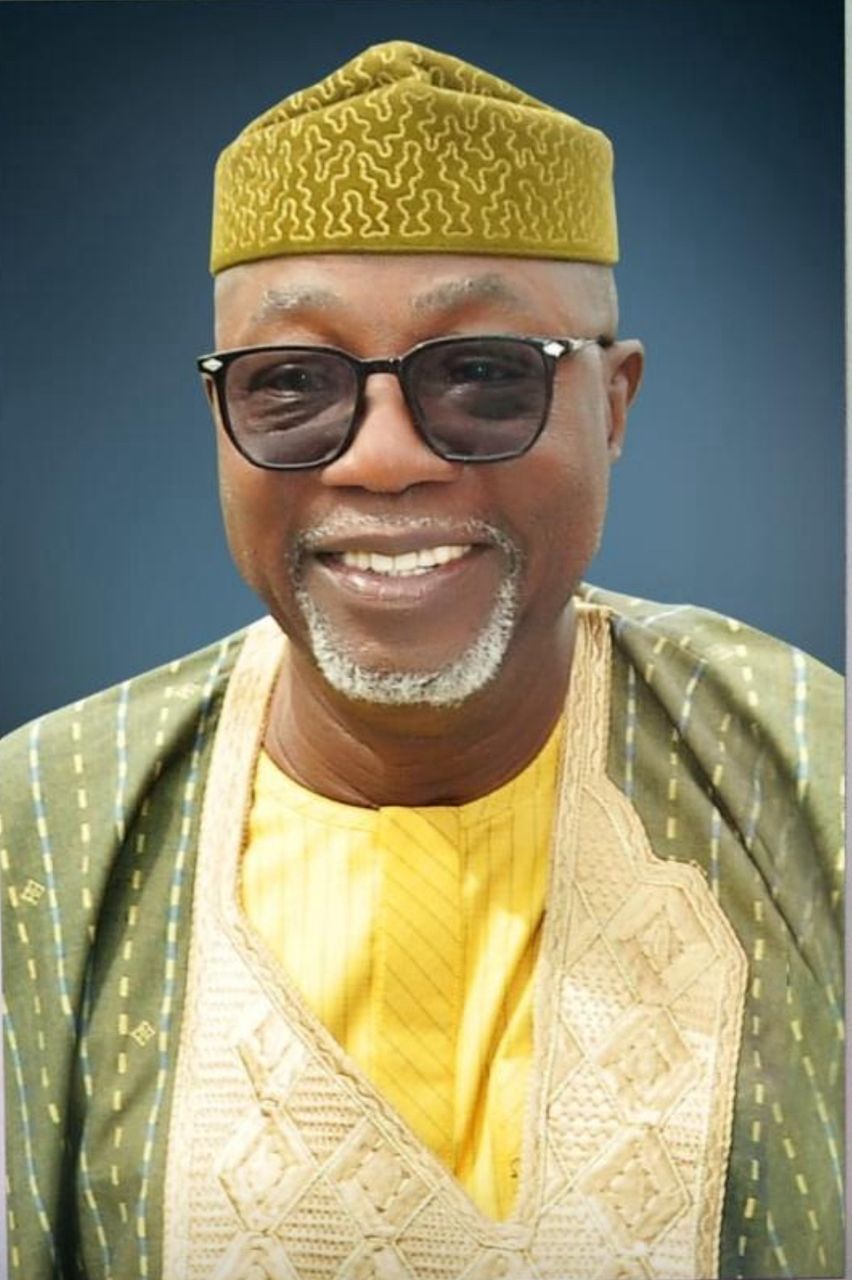NEZA Welcomes Tax Reforms But Calls for Constructive Dialogue On Impacts To Nigeria’s Free Zones

The Nigeria Economic Zones Association (NEZA) has commended the Federal Government in enacting the Nigeria Tax Act, 2025 and the Nigeria Tax Administration Act, 2025, recognising it as a significant step towards enhancing fiscal transparency and strengthening revenue assurance across the country.
The NEZA, however, noted with concern that certain provisions of these laws, as they affect Special Economic Zones (SEZs) and Free Trade Zones (FTZs), pose significant risks to Nigeria’s investment climate.
In a statement signed by Toyin Elegbede, Executive Secretary, NEZA, he stated that without careful engagement and strategic interventions, these reforms risk eroding investor confidence, jeopardising over one hundred thousand jobs, triggering capital flight to competing African countries, and increasing costs for Nigerian consumers.
“At a time when Nigeria should be consolidating its leadership under the African Continental Free Trade Area (AfCFTA), policies that weaken the free zone scheme could inadvertently shift competitive advantage to neighbouring economies,” NEZA Scribe stated.
He added, “The new tax provisions affecting SEZ and FTZ operators have created deep uncertainty among investors and for the first time, have created a situation where even companies that export 100% of their products from the free zone can be subject to taxation, completely undermining the free zone scheme and making Nigeria’s free zones one of the least attractive and competitive on the continent.
“Our members are particularly worried that: Nigeria’s zones currently sustain over 100,000 direct jobs, with many more indirectly supported through supply chains and services. A decline in investors’ confidence would place these jobs at immediate risk, undermining efforts to drive inclusive economic growth.
“Investors may choose to relocate to other African countries with more favourable free zone regimes, while still benefitting from duty-free access to the Nigerian market under AfCFTA rules. This would deprive Nigeria of the very investments, skills transfer, and employment opportunities the zones were designed to secure.
“By taxing domestic sales from the zones, the reforms risk raising the cost of goods in the customs territory. This undermines competitiveness for Nigerian businesses and places additional burdens on consumers.”
Elegbede continued, “The perception that the FTZs operating with 100% export orientation or complying with the 75% export outside the Custom territory would be exempt has been nullified by Section 57 of the Nigeria Tax Law, 2025 which stipulates that every company meeting these conditions will still be subject to taxation.
“It is concerning especially as FTZs have been beneficiaries of Foreign Direct Investment (FDI) and thereby including more entities irrespective of the exemptions stated in the second schedule
“The unprecedented minimum effective tax rules that will apply to multinationals or companies generating above a certain revenue threshold within the free zones significantly harm these companies by effectively stripping them of their key tax incentives, even for those who do not sell into Nigeria
“Although aimed at increasing tax collection, the reforms could shrink Nigeria’s overall revenue base if zones collapse or investors shift operations to more favourable environments, resulting in long-term losses that outweigh short-term gains,” he stated.
NEZA stressed that these risks are not hypothetical; current and prospective investors are already expressing concerns and actively reassessing Nigeria’s competitiveness relative to other countries in the region.
“Contrary to the pronouncements of the Presidential Fiscal Policy and Tax Reforms Committee, the Nigeria Tax Law, 2025 made fundamental and adverse changes to the Enabling Acts of the Free Zones Regulatory Authorities (NEPZA & OGFZA). Despite repeated assurances, the Nigeria Tax Law provisions are not consistent with the Enabling Acts; instead for the first time, free zone enterprises who do not sell into Nigeria custom territory will be subject to taxation in an unparalleled and aggressive encroachment into Nigeria’s free zones.
“Again, contrary to perceptions that Free Zones deprive government of revenue, the reality is that zones already make substantial contributions to Nigeria’s economy and fiscal system. Under the supervision of the Regulatory Authorities, free zone operators pay an average of $100,000 per zone (25 fully operational zones under NEPZA and 8 under OGFZA) annually in Operating Licence (OPL) renewal fees excluding additional renewals by FZEs, and pay an additional $100,000 per zone annually in container examination charges. In 2024 alone, free zones contributed over ₦100 billion in customs duties and remitted over ₦2 billion in PAYE taxes on behalf of employees. They also meet numerous other obligations, including immigration fees, authority administrative fees, and levies.
“These figures do not even begin to capture the broader economic impact of Nigeria’s free zones including infrastructure investments, deepening supply chain linkages, skills development of local talent, and the creation of over 100,000 direct jobs.
“Beyond fiscal contributions, world-class infrastructure is the backbone of any successful free zone programme. A compelling example is Morocco’s Tanger Med Free Zone, a state-led public-private partnership (PPP)-driven complex where total investment reached about $11.2 billion by 2022 ($ 4.3 billion from public sources and $ 6.9 billion from private investors). In 2023, the port handled 8.61 million TEU, with its industrial zones hosting about 1,200 companies, generating 110,000 jobs and $15 billion in exports. It is now on track to exceed its nominal capacity of 9 million TEU. This is what strategic, coordinated investment combined with policy stability can deliver. Nigeria has the potential to replicate and even surpass such success, but only if the free zone framework is protected and strengthened, not undermined.
“Nigeria’s model increasingly relies on private capital to drive development within our Free Zones, from the $1.5 billion Lekki Deep Sea Port, financed largely by private investors and international banks, to the Dangote Refinery ($19 billion) and Alaro City’s privately funded backbone infrastructure ($1 billion in total committed investments).
“These are flagship, investor-led assets that de-risk government balance sheets while expanding logistics and industrial capacity. Policy uncertainty that weakens zone incentives threatens these kinds of investment and deters the private investment our free zone model depends on. Nigeria’s free zones have proven to be engines of trade, industrialisation, and employment and should not be weakened in the guise of tax reforms.
“In fact, comparative models have demonstrated that FZEs are already at a structural disadvantage by incurring significant additional costs. On the same operating base, the extra expenses being incurred by FZEs, including Free on Board (FOB) charges, OPL and Ground Rent have already eroded into their profits, making them less profitable than similar companies operating in the custom territory. If the new tax law is implemented, this disparity will widen further. This clearly shows that the new regime erodes the core objective of the free zone policy which is to enhance competitiveness and attract investment.
“Furthermore, NEZA recognises the concerns expressed by the Manufacturers Association of Nigeria (MAN), particularly the view that Free Zones may create an uneven playing field for manufacturers operating within the customs territory. However, addressing these concerns requires solutions that extend beyond the scope of FTZs. It is important to re-affirm the original intent and global best practice behind the establishment of Special Economic Zones: they are designed primarily to attract foreign direct investment, expand exports, and generate jobs by creating competitive enclaves that drive industrialisation and connect to wider markets.
“Free Zones are not designed to displace local manufacturers but to complement them by serving as entry points for foreign capital, advanced technology and know-how. In doing so, they contribute to employment, value creation and fiscal revenues that ultimately benefit the entire economy. It is imperative to recognise that should FTZs diminish or cease to exist, imports from other countries will continue at the expense of local production, industrialization, end-to-end supply chains and employment, which are critical to economic growth of the country.
“It is also important to note that while Nigeria is debating on how to narrow the scope of its zone incentives, other African countries are moving in the opposite direction. Ethiopia, Kenya, Ghana, Rwanda, Morocco, and Egypt are actively strengthening their SEZ and industrial park regimes, offering generous economic incentives, duty-free imports, and simplified customs processes to attract global investors.
“Their clear goal is to use SEZs as launchpads for AfCFTA exports. For example, Ethiopia is a leader in the textile industry in Africa, leveraging the advantages of free zones to scale production. Nigeria’s ability to compete in an industry it is revitalizing will be threatened with the erosion of the FTZs.
“If Nigeria weakens its Free Zone scheme, investors may simply relocate to these competitor economies, produce there, and still export duty-free into Nigeria under AfCFTA. This would not only erode Nigeria’s investment attractiveness but also expose domestic manufacturers to greater external competition, the very concern MAN has raised.
“The solution, therefore, is not to stifle or weaken the free zone scheme but to establish fair and transparent rules that balance the interests of manufacturers in the customs territory with the export-driven mandate of FZEs. With proper consultation and policy design, both can thrive creating a more diversified, competitive Nigerian economy.
“As the umbrella union for Nigeria’s Special Economic Zones, NEZA has always played a bridging role between government, investors, and the public. Our mandate is to ensure that policy decisions are well aligned with operational realities, so that reforms deliver their intended benefits without undermining confidence or discouraging investment.
“The recent tax reforms, however, were introduced with insufficient engagement with key zone stakeholders, limiting the depth required for a wholistic, workable and balanced outcome. This lack of structured dialogue risks creating policy misalignment, where the reforms may inadvertently erode the very industrialisation, job creation, and export diversification objectives that government seeks to achieve.”
NEZA reaffirmed its unwavering commitment to supporting operators across Nigeria’s SEZs and FTZs.
“We remain dedicated to working collaboratively with the government to ensure that the reforms achieve their goals of transparency, fairness, and revenue assurance without destabilising a scheme that has generated billions in revenue, created thousands of jobs, and helped positioned Nigeria as an investment destination.
“We therefore urge the Presidency, the Federal Inland Revenue Service, NEPZA, OGFZA, and other key stakeholders to engage in a structured and inclusive dialogue with operators. Open and transparent consultation will allow the government to assess empirical data, design appropriate transitional measures, and implement reforms in a manner that preserves investor confidence and safeguards Nigeria’s competitiveness.
“As part of this dialogue, NEZA respectfully requests that government considers a moratorium on the implementation of the new tax provisions for FZEs. A phased approach, whether through a transition period, a temporary extension of existing incentives, or the “grandfathering” of enterprises already operating under earlier frameworks, will provide investors the certainty needed to protect jobs, honour financing commitments, and complete long-term projects. This will also give government the necessary space to conduct impact assessments and design an orderly framework that balances revenue objectives with Nigeria’s trade and economic competitiveness.
“At a time when other African countries are strategically leveraging SEZs to attract investment and maximize the opportunities presented by AfCFTA, Nigeria cannot afford policies that risk driving investors elsewhere.
“What is needed now is stability, policy clarity, and constructive engagement underpinned by a well-considered moratorium on the implementation of the new tax provisions. This approach is essential to ensure that Nigeria’s Free Zones continue to serve as engines of growth, industrialisation, and global competitiveness.”













